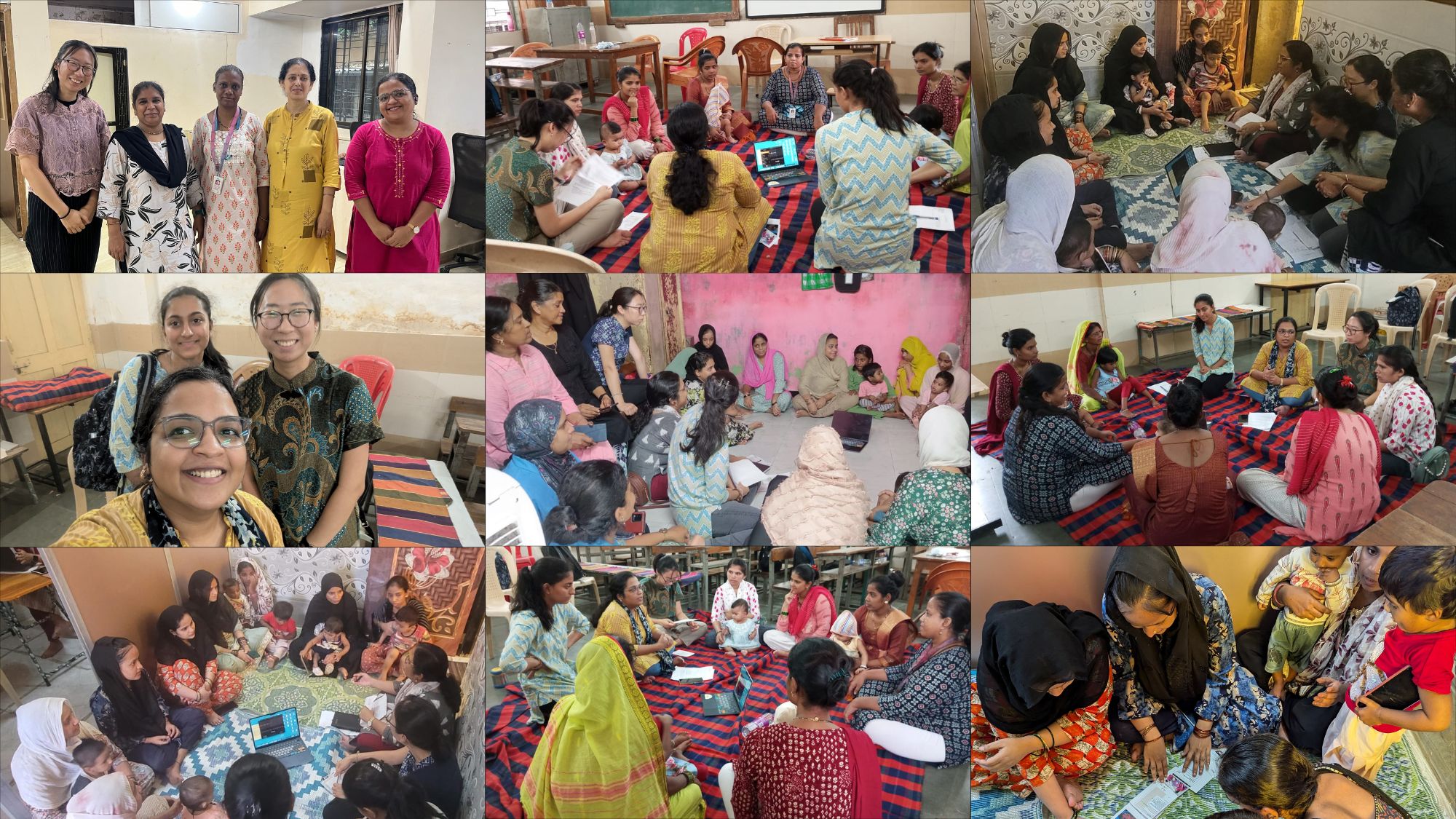Discovering Approaches to Maternal and Child Health: Lessons from Local NGOs in India

Over the past seven years of studying and working on nutrition issues in Indonesia, where the challenges often seem never-ending, I have always been curious about how other countries address similar problems. India, as a close neighbour with comparable characteristics, has long been an inspiration to Indonesia, particularly for its long-standing health programs and the vital role played by community health workers.
This summer, I had the privilege of working with the Society for Nutrition, Education, and Health Action (SNEHA) in Mumbai, thanks to an introduction from Dr. K. Viswanath, Lee Kum Kee Professor of Health Communication at Harvard T.H. Chan School of Public Health and to the support of the Harvard Chan India Research Center. More than anything, this experience taught me about the immense power of data in driving change in community health.
While I knew in theory the importance of monitoring and evaluation in building effective programs, seeing this process firsthand at SNEHA gave me a newfound appreciation for it. They meticulously collect data from baseline measurements and routine monitoring of health services to endline evaluations. I also realized that establishing a strong data system is a common practice among many non-governmental organizations (NGOs) in India, including the Salaam Bombay Foundation, which I had the opportunity to observe during one of their school activities.
Uncovering the links between maternal and child diets
One of the main areas of my research with SNEHA was Minimum Dietary Diversity (MDD), a well-recognized indicator of child nutrition and health. However, the concept of maternal MDD is not as widely discussed or emphasized. We often think of children’s meals as separate, focusing primarily on their specific nutritional needs based on age. Yet, insights from SNEHA’s data showed that maternal MDD is closely linked to a child’s MDD. When mothers consume at least five of the ten food groups in a day, their children are more likely to meet their own nutritional requirements as well.
This insight made me realize that we often emphasize educating mothers on how to prepare nutritious meals for their children, but rarely on how to take care of their own dietary needs. Addressing this gap could improve both maternal and child health simultaneously. Interestingly, on my last day, I learned about the “Go, Grow, and Glow” food framework adopted by the Government of India during a visit to a Salaam Bombay school activity. This approach encourages diverse eating habits by categorizing foods into three simple groups: Go foods for energy (carbohydrates and fats), Grow foods for growth (proteins), and Glow foods for overall health (vitamins and minerals). I found this culturally relevant approach both interesting and practical, and believe it could be extended as a Social and Behavioural Change Communication (SBCC) tool for promoting dietary diversity in households through organizations like SNEHA.
Engaging with artificial intelligence and community health workers
I was also involved in an innovative Artificial Intelligence (AI) chatbot initiative focused on maternal and child health. Initially, the chatbot was designed to help mothers access reliable health information and reduce the burden of community health workers (CHWs), who are often short-staffed and overextended. At first, we focused on interviewing mothers to understand their experiences and needs. However, we soon realized that CHWs are an essential part of the system and have invaluable insights to share. Their involvement and feedback became a vital part of the formative research, helping identify new ways to improve the chatbot’s design and effectiveness for both mothers and CHWs.
Lessons learned and moving forward
Reflecting on this experience, I feel incredibly grateful for the opportunity. It showed me the importance of relying on data for decision-making and program design, even though turning data into actionable insights remains a challenge. This experience broadened my perspective on the nuances of global health work, highlighting both similarities and differences in how countries tackle complex health issues.
I hope that the work I have been a part of will continue to benefit the mothers, children, and community health workers I had the privilege of learning from. As I move forward in my studies and career, I will carry these lessons with me, reminding myself to remain open to new perspectives and approaches.
– Ms. Melinda Mastan, MPH Candidate ’25
Supported through the India Internship Grant awarded by the Harvard T.H. Chan School of Public Health – India Research Center